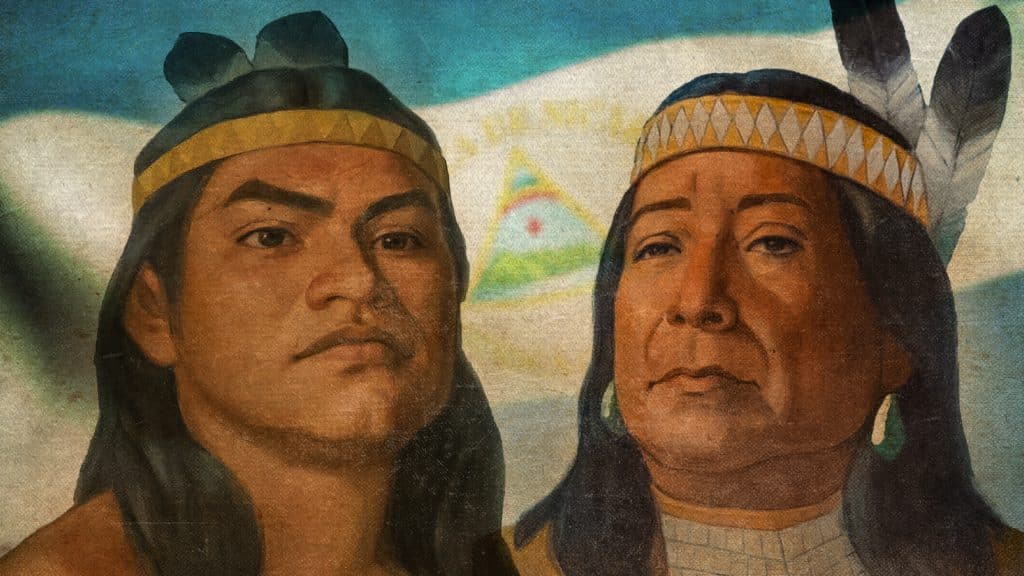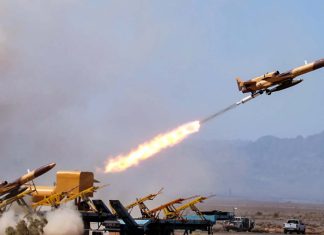
For five centuries, the indigenous resistance in Nicaragua has played a transcendental role in the struggle for the independence and self-determination of the Nicaraguan people. The Legislative Assembly of the Central American country has honored that legacy, naming the indigenous chiefs, Diriangén and Nicarao, heroes, and has condemned colonialist practices in the world.
Both indigenous leaders will be recognized as of April 17 of this year as «Indigenous Heroes of Our Anti-imperialist Struggles», after the declaration of Law made by the Nicaraguan Legislative Power.
Law has full force in the world
In this sense, the parliamentarian, Walmaro Gutierrez, fully explained that this Law is fully valid in the current geopolitical context, given the existence of colonialist nations around the world.
“It is a shame that in the 21st century there are still colonies. That is why, from an eminently constitutional point of view, this Law that we are approving is of main importance and is in force,” argued Gutierrez.
In addition, he added that it is not just a «Law that commemorates the historical deeds of two indigenous chiefs, it is a Law that must thunder in the ears of the empire, so that here it knows in loud and clear voices that Nicaragua is anti-imperialist, it is anti-colonialist”.
The Nicaraguan legislator vehemently assured that as long as Nicaragua has women and men who love it, «it will be free, sovereign, independent and self-determined.»
The enemy remains the same, imperialism and colonialism
Gutierrez outlined that 500 years later, with all the human, technological, political, social and economic development of the Planet, «it would be unthinkable that a country under the sole argument of feeling superior to the rest of the countries in the world, would impose by force, by war, by the cold steel its dictates to other countries of the world, because in the end that is imperialism”.
The representative of the legislature reflected in the plenary session that it is very «sad that after so much history, so much development, today, 500 years later, the enemy is the same… imperialist attitudes, colonialist attitudes continue to be present in this modern world».
«… Imperialist attitudes and colonialist attitudes still persist and with more force than ever, which by common sense should be condemned by all of us who consider ourselves civilized humans,» he warned.
Nicaragua condemns the colonialist actions and subjugation
The Nicaraguan politician illustrated that «the fundamental objective of imperialism is none other than to prey, steal and subdue.» In addition, he explained that, according to UN data, there are still no less than 17 colonies in the world, «that are intervened by a colonialist country, they are islands that are under the control of the United Kingdom, the United States of America, France and New Zealand.
In this context, Gutierrez insisted that Nicaraguans must «condemn loud and clear all attitudes of imperialism, colonialism and subjugation that by force of arms or by force of hunger seek to subdue a free, sovereign, independent and self-determined, because it is the right that peoples have earned throughout history”.
Likewise, Deputy Edwin Castro recalled that «the Spanish invaders, the English and Dutch invaders, came to these lands to steal, to usurp, to kill, to massacre the native peoples who resisted with gallantry, courage, and heroism to these imperialist invaders”.
Nicaragua expelled the invader
«Here in this territory 500 years ago, on a day like today, these invaders led by Gil González suffered the confrontation and defeat of two chiefs, Diriangen and Nicarao, who expelled them from these lands,» Castro explained.
The deputy of the National Assembly of Nicaragua, recounted that «on April 17, 500 years ago, Diriangén confronted Gil González and made him go back and when he went back on the Isthmus of Rivas, Nicarao entered with his troops and they ended up expelling the invader».
Castro stressed that this is the gallantry that Nicaraguans have in their DNA against empires, «that is the example of the fight we have against colonialism,» he emphasized.
You can read: Daniel Ortega: Nicaragua has regained stability after the coup attempt
The Law intends to promote at the national level the «legacy and leadership of the indigenous resistance of both chiefs, who never submitted to the demands of the invaders of the Spanish empire, whose colonialist and imperialist attitudes continue to haunt the peoples of the world.» according to the press release of the Legislative Power of the Central American nation.
It may interest you: Daniel Ortega: Humanity has only one homeland that fights for peace
In addition, it establishes that «the warrior spirit of our people is recognized against any system of political and ideological submission, of those who came to establish their colony in a brutal and genocidal way with the cross and the sword.»





